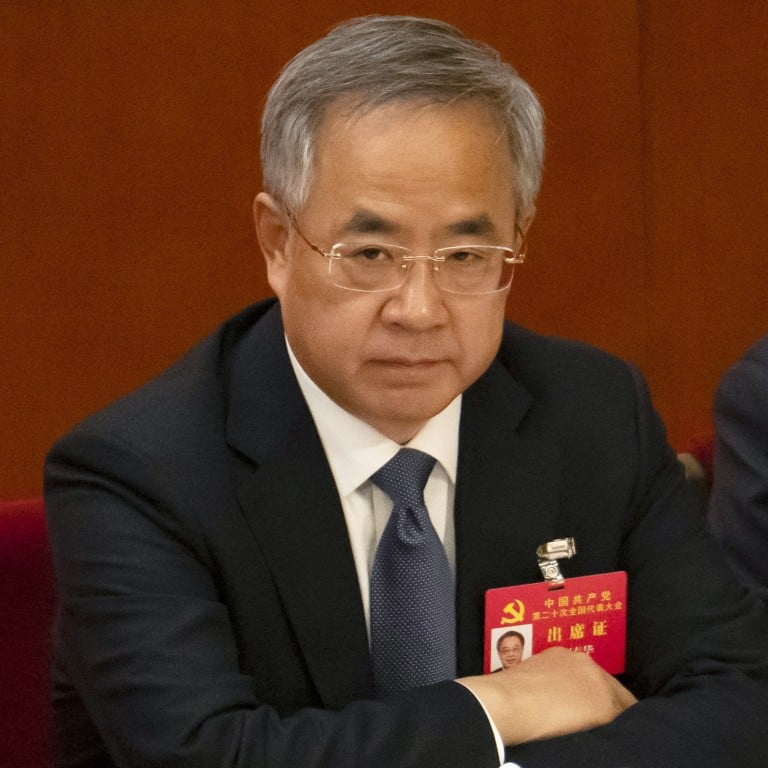
China’s Hu Chunhua loses Politburo seat, raising doubts about political future
- Former rising star who was expected to secure a Standing Committee seat now poised to lose vice-premier position in eyebrow-raising demotion
- Move comes as a surprise as he is nine years shy of unofficial retirement age and has been a loyal enforcer of Xi Jinping’s poverty alleviation project
Not only did Hu fail to gain a spot on the Politburo’s seven-strong Standing Committee, he also lost his seat on the Politburo.
Hu is one of four vice-premiers of the State Council, China’s cabinet, but he will lose this position as Politburo membership is a precondition for the role.
Hu’s exit from the top has surprised many, as the 59-year-old is still nine years shy of the customary retirement age for his position. He has been a loyal enforcer of Xi’s grand poverty alleviation project and has promoted trade amid disruptions.
“This feels like the end of his ascending career,” Wu said. “He will probably be given a post that is unimportant.”
After graduating from Peking University in 1983, Hu spent almost two decades in Tibet, starting as a cadre in the personnel department of Tibet’s regional youth league and rose to deputy secretary of the league at only 24.
Hu, a native of central China’s Hubei province, comes from a modest family background.
For more than 20 years, his political star rose as he remained unscarred by one crisis after another.
In 2008, Hu became governor of Hebei province, where he had to contain the damage from a tainted milk scandal that affected 300,000 infants during a sensitive time as the Beijing Summer Olympics put the country in the global spotlight.
In 2011, Hu also contained major social unrest in the region as ethnic Mongolians protested against government attempts to exploit natural resources and the death of a Mongolian herder who was hit by a truck. It was the region’s first major social unrest in more than two decades. Hu deployed security forces across Inner Mongolia to ease the tensions and talked with protesters, promising to compensate local herders.
In 2012, Hu was granted a seat on the Politburo and became the youngest party secretary in the history of Guangdong province.
Guangdong has the biggest economy of any province in China and has long been a stepping stone for higher office. Since 1998, all Guangdong party chiefs have ended up in top jobs on the Politburo Standing Committee, with Hu now the only exception.
Wu described Hu’s approach as “hard line” and somewhat similar to Xi’s.
While the Politburo and its seven-member Standing Committee handle the most important decisions in China, little is known about how those members are selected, and the process has become more opaque over the past 15 years.
Limited details of the process are provided to the public. The selections are based on nominations made during small meetings, mostly involving Xi, before the national congress.
The party has said the selection process is meant to prevent vote-rigging by senior officials.
Additional reporting by Xinlu Liang

